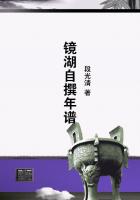Evidently we have to acquire knowledge of the original causes (for we say we know each thing only when we think we recognize its first cause), and causes are spoken of in four senses. In one of these we mean the substance, i.e. the essence (for the 'why' is reducible finally to the definition, and the ultimate 'why' is a cause and principle); in another the matter or substratum, in a third the source of the change, and in a fourth the cause opposed to this, the purpose and the good (for this is the end of all generation and change). We have studied these causes sufficiently in our work on nature, but yet let us call to our aid those who have attacked the investigation of being and philosophized about reality before us.
For obviously they too speak of certain principles and causes; to go over their views, then, will be of profit to the present inquiry, for we shall either find another kind of cause, or be more convinced of the correctness of those which we now maintain.
Of the first philosophers, then, most thought the principles which were of the nature of matter were the only principles of all things.
That of which all things that are consist, the first from which they come to be, the last into which they are resolved (the substance remaining, but changing in its modifications), this they say is the element and this the principle of things, and therefore they think nothing is either generated or destroyed, since this sort of entity is always conserved, as we say Socrates neither comes to be absolutely when he comes to be beautiful or musical, nor ceases to be when loses these characteristics, because the substratum, Socrates himself remains. just so they say nothing else comes to be or ceases to be; for there must be some entity-either one or more than one-from which all other things come to be, it being conserved.
Yet they do not all agree as to the number and the nature of these principles. Thales, the founder of this type of philosophy, says the principle is water (for which reason he declared that the earth rests on water), getting the notion perhaps from seeing that the nutriment of all things is moist, and that heat itself is generated from the moist and kept alive by it (and that from which they come to be is a principle of all things). He got his notion from this fact, and from the fact that the seeds of all things have a moist nature, and that water is the origin of the nature of moist things.
Some think that even the ancients who lived long before the present generation, and first framed accounts of the gods, had a similar view of nature; for they made Ocean and Tethys the parents of creation, and described the oath of the gods as being by water, to which they give the name of Styx; for what is oldest is most honourable, and the most honourable thing is that by which one swears.
It may perhaps be uncertain whether this opinion about nature is primitive and ancient, but Thales at any rate is said to have declared himself thus about the first cause. Hippo no one would think fit to include among these thinkers, because of the paltriness of his thought.
Anaximenes and Diogenes make air prior to water, and the most primary of the ****** bodies, while Hippasus of Metapontium and Heraclitus of Ephesus say this of fire, and Empedocles says it of the four elements (adding a fourth-earth-to those which have been named); for these, he says, always remain and do not come to be, except that they come to be more or fewer, being aggregated into one and segregated out of one.
Anaxagoras of Clazomenae, who, though older than Empedocles, was later in his philosophical activity, says the principles are infinite in number; for he says almost all the things that are made of parts like themselves, in the manner of water or fire, are generated and destroyed in this way, only by aggregation and segregation, and are not in any other sense generated or destroyed, but remain eternally.
From these facts one might think that the only cause is the so-called material cause; but as men thus advanced, the very facts opened the way for them and joined in forcing them to investigate the subject. However true it may be that all generation and destruction proceed from some one or (for that matter) from more elements, why does this happen and what is the cause? For at least the substratum itself does not make itself change; e.g. neither the wood nor the bronze causes the change of either of them, nor does the wood manufacture a bed and the bronze a statue, but something else is the cause of the change. And to seek this is to seek the second cause, as we should say,-that from which comes the beginning of the movement. Now those who at the very beginning set themselves to this kind of inquiry, and said the substratum was one, were not at all dissatisfied with themselves; but some at least of those who maintain it to be one-as though defeated by this search for the second cause-say the one and nature as a whole is unchangeable not only in respect of generation and destruction (for this is a primitive belief, and all agreed in it), but also of all other change; and this view is peculiar to them. Of those who said the universe was one, then none succeeded in discovering a cause of this sort, except perhaps Parmenides, and he only inasmuch as he supposes that there is not only one but also in some sense two causes. But for those who make more elements it is more possible to state the second cause, e.g. for those who make hot and cold, or fire and earth, the elements; for they treat fire as having a nature which fits it to move things, and water and earth and such things they treat in the contrary way.














